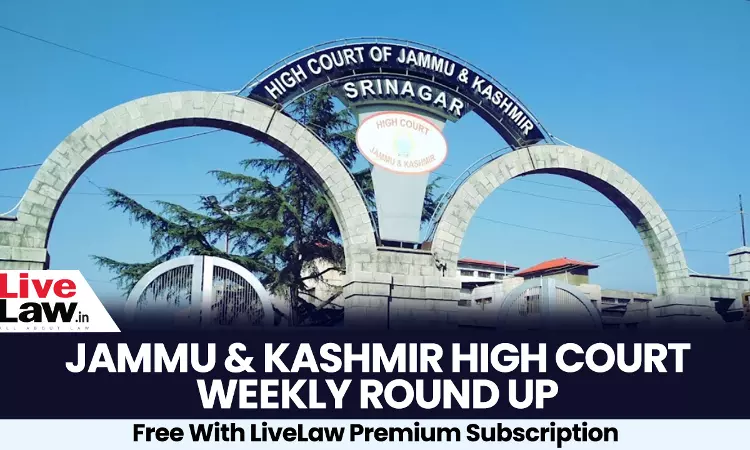Jammu and Kashmir and Ladakh High Court Weekly Roundup June 10 - June 16, 2024
LIVELAW NEWS NETWORK
18 Jun 2024 9:05 AM IST

Next Story
18 Jun 2024 9:05 AM IST
Nominal Index:Kapil Sharma Vs UT of J&K 2024 LiveLaw (JKL) 142Naba Kumar Giri Vs Union Of India 2024 LiveLaw (JKL) 143Sita Devi Vs Union Of India 2024 LiveLaw (JKL) 144Sh. Vaibhav Singh Vs Sh. Taushar Gaind 2024 LiveLaw (JKL) 145Mohammad Ashraf Mir Vs State Of J&K 2024 LiveLaw (JKL) 146Manzoor Ahmad Gunna& Ors. Vs Ut Of J&K And Anr 2024 LiveLaw (JKL) 147Kewal Krishan Gupta Vs...
